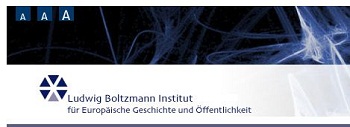Géza Jeszenszky
July 1944. Deportation of the Jews of Budapest Foiled (Saint Helena, CA: Helena History Press, 2018).
ISBN: 978-1-943596-06-5
cloth
$50.00 / €42.00 / £37.00
With the Nazi occupation of Hungary on 19 March 1944, the deportation of 800,000 Hungarian Jews to the German-run concentration camps commenced. By the end of June, with the supervision of Eichmann, the authorities of the puppet government of Hungary transported half a million Jews to Auschwitz. The aim of this volume is to shed light on a little known controversy about this tragedy: did a unit of the Hungarian army prevent the deportation of the remaining close to 300 000 Jewish Hungarians, living in Budapest, to the Nazi death camps?
Lieutenant Colonel Ferenc Koszorús used the 1st Hungarian Armored Division under his command to force the removal of the gendarmerie loyal to the pro-Nazi puppet government and ready to carry out the deportation of the Jews from Budapest. By that time Horthy, under international pressure and also learning from the Auschwitz Protocol of what was in store for the deported Hungarian nationals, ordered the ending of the deportations. There were rumors in town that the pro-Nazi and rabidly anti-Semitic State Secretary Baky was planning a coup to remove the Regent and to continue the deportations. A large number of gendarmerie was collected in Budapest, to carry out the quick round-up and deportation of the last intact Jewish population in Europe. Lt-Col. Koszorús, having acquired a command from Horthy, entered Budapest with his troops and sent a courier to Baky threatening him with military action unless the gendarmerie is evacuated. Baky had no alternative but to comply. This action foiled both the coup (if that was really planned) and the continuation of the deportations. The Jews of Budapest were thus temporarily saved and Wallenberg and others could help them to survive the war until the Soviet army occupied Budapest and expelled the Germans by February 1945.













